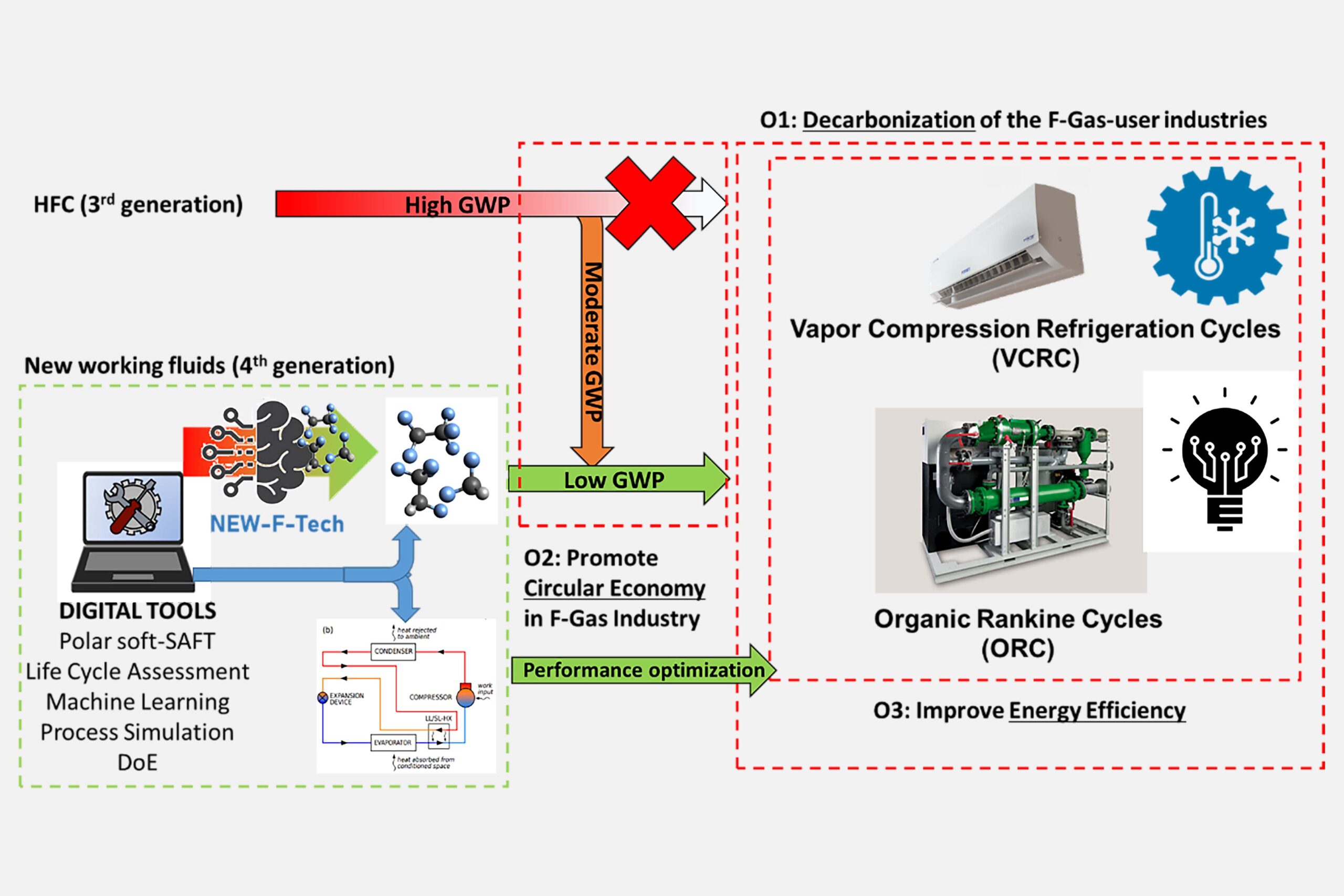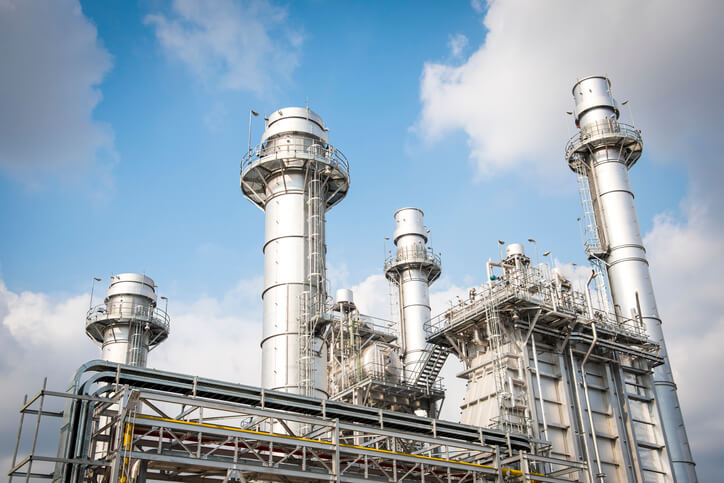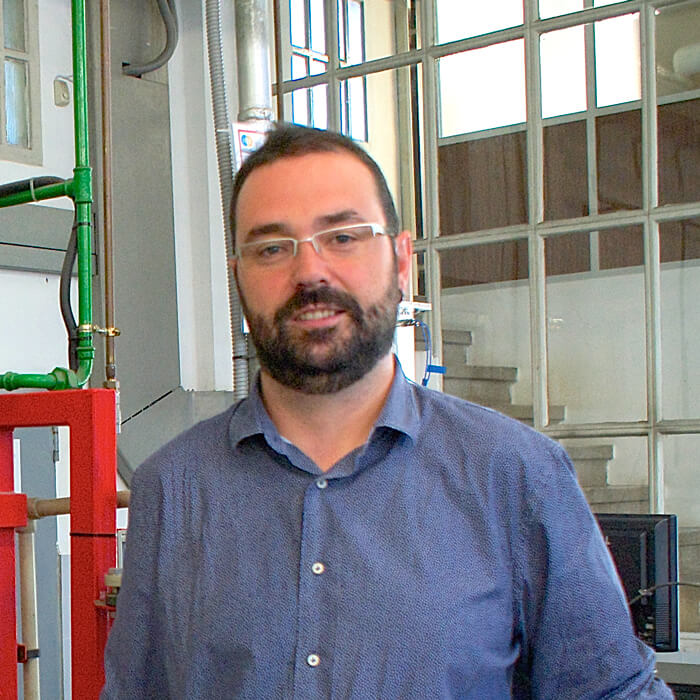The Environmental Process Engineering and Simulation Group (GESPA) has been working since 2019 on projects aimed at minimizing the environmental impact of fluorinated gases. These compounds are widely used in both industrial and domestic refrigeration systems. Although CO2 emissions account for 2/3 of global greenhouse emissions, fluorinated gases play a prominent role in this environmental issue, due to their high global warming potential (GWP), thousands of times higher than CO2, which makes it crucial to look for more sustainable alternatives.
More Sustainable Refrigeration Fluids as an Alternative to Fluorinated Gases

Thus, the main challenge presented by these gases involves looking for alternatives both for their replacement by lower GWP options, and for their reuse in supporting the circular economy.
The GESPA group, in collaboration with Dr Félix Llovell at Rovira y Virgili University, is working on the NEW-F-TECH project called Novel and Engineered Working Fluids for the refrigeration and energy industry: TECHnical solutions with low global warning potential. This proposal aims at accelerating the necessary ecological transition by tackling the challenge of progressively replacing fluorinated working fluids with high GWP – HFCs, which are used in Vapor Compression Refrigeration Cycles (VCRCs) and Industrial Rankine Organic Cycles (ROCs), with other low GWP fluids, in accordance with EU F-Gas regulation (517/2014).
This search for new alternatives to HFCs, with proposals based on 4th generation compounds with low GWP, has a high impact, both from an environmental and economic point of view.
NEW-F-TECH objectives
In this way, this project will contribute to achieving three main objectives in the industrial field, including:
- Decarbonization, through the direct replacement of HFC equipment with high GWP.
- The circular economy, through the formulation of new mixtures of HFCs with moderate GWP, which have been recovered and can be reused in combination with other compounds that also have low GWP.
- Energy efficiency, by optimizing equipment in real applications and studying the impact of new fluids through key performance indicators based on the type of cycle.
Work methodology
The methodology that the researchers will use in this project consists of using computational tools that allow them to provide solutions to this challenge, and that can identify potential alternatives to HFCs, together with molecular state equations, based on the Statistical Associating Fluid Theory (SAFT), combined with Machine Learning techniques. All this will make it possible to characterize and select different compounds and mixtures, offering information even when no data are available.
Finally, the different options proposed will be evaluated through Life Cycle Analysis to quantify the reductions in environmental impact achieved.
Related publications
Jovell D., Gonzalez-Olmos R., & Llovell F. (2022). A computational drop-in assessment of hydrofluoroethers in Organic Rankine Cycles, Energy, 254, 124319.
The NEW-F-TECH project (TED2021-130845ª-C32) is being funded by the Ministry of Science and Innovation/State Agency for Research/10.13039/501100011033 and by the European Union “NextGenerationEU”/PRTR, within the framework of the 2021 call for Strategic Projects Aimed at Ecological Transition and Digital Transition.















